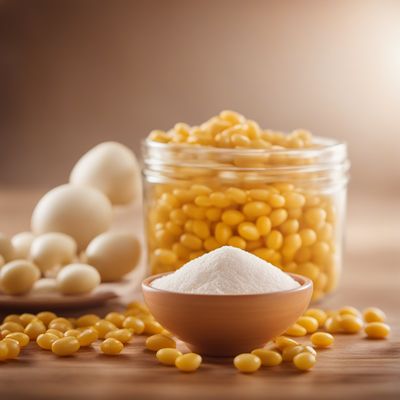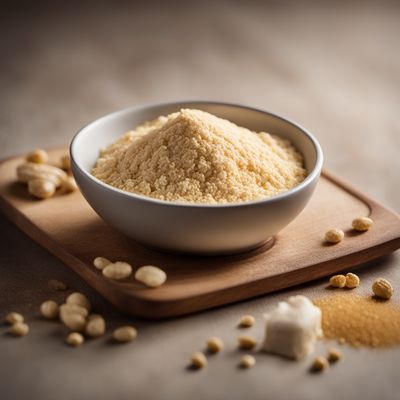
Ingredient
Miscellaneous supplements or nutraceuticals
The Power of Nutraceuticals
Miscellaneous supplements or nutraceuticals encompass a wide range of products, including vitamins, minerals, herbal extracts, probiotics, and more. These supplements are designed to provide additional nutrients or bioactive compounds that may promote health and prevent diseases. They come in various forms such as capsules, tablets, powders, or liquids, and are commonly used as a complement to a balanced diet and healthy lifestyle choices.
Origins and history
The concept of using supplements or nutraceuticals to enhance health has been practiced for centuries, with ancient civilizations relying on natural remedies and herbal preparations. The modern nutraceutical industry has evolved to incorporate scientific research and technological advancements, offering a vast array of products to support different health needs. The popularity of nutraceuticals continues to grow as people seek proactive ways to optimize their well-being.
Nutritional information
Nutritional information varies greatly depending on the specific supplement or nutraceutical. Some may provide essential vitamins, minerals, or antioxidants, while others may contain specific bioactive compounds with potential health benefits. It is important to read the product labels and consult with healthcare professionals to understand the nutritional content and recommended dosage of each supplement.
Allergens
Allergens associated with miscellaneous supplements or nutraceuticals may vary depending on the specific ingredients used. Common allergens to watch out for include soy, gluten, dairy, and shellfish. It is crucial to carefully read the labels and consult with healthcare professionals if you have known allergies or sensitivities.
How to select
When selecting miscellaneous supplements or nutraceuticals, it is essential to consider the reputation and credibility of the brand or manufacturer. Look for products that have undergone third-party testing for quality and purity. Additionally, check for certifications such as Good Manufacturing Practices (GMP) or NSF International to ensure the product meets industry standards. It is advisable to consult with healthcare professionals or registered dietitians to determine the most suitable supplements for your specific health needs.
Storage recommendations
To maintain the freshness and potency of miscellaneous supplements or nutraceuticals, it is crucial to store them according to the manufacturer's instructions. Most supplements should be kept in a cool, dry place away from direct sunlight, moisture, and heat. Additionally, ensure that the containers are tightly sealed to prevent oxidation or moisture absorption. It is advisable to check the expiration dates regularly and discard any expired or damaged supplements.
How to produce
Producing miscellaneous supplements or nutraceuticals requires specialized knowledge, expertise, and often sophisticated manufacturing processes. It is not recommended for amateurs to produce these products at home due to the potential risks associated with improper formulation, dosage, or contamination. It is best to rely on reputable manufacturers who follow strict quality control measures and regulatory guidelines.
Preparation tips
When using miscellaneous supplements or nutraceuticals, it is important to follow the recommended dosage provided on the product label or as advised by healthcare professionals. Some general tips include taking supplements with meals to enhance absorption, avoiding excessive doses, and being consistent with the intake. It is crucial to remember that supplements are not a substitute for a balanced diet and healthy lifestyle, but rather a complement to support overall well-being.
Culinary uses
Miscellaneous supplements or nutraceuticals are commonly used to support overall health and well-being. They can be incorporated into daily routines by taking them with meals or as directed by healthcare professionals. These supplements are often used to address specific health concerns, such as vitamin deficiencies, joint health, immune support, or cognitive function. It is important to consult with healthcare professionals or registered dietitians to determine the most appropriate supplements for individual needs.
More ingredients from this category

Coenzyme q10 formulations
The Power of Coenzyme Q10: Formulations for Optimal Health

Algae based formulations (e.g. Spirulina, chlorella)
The Green Powerhouse: Algae-based Formulations

Yeast based formulations
The Magic of Yeast: Unlocking the Power of Fermentation

Herbal formulations and plant extracts
Harnessing Nature's Power: The Wonders of Herbal Formulations and Plant Extracts

Formulations containing special fatty acids (e.g. Omega-3, essential fatty acids)
The Nutritional Powerhouses: Harnessing the Benefits of Omega-3 and Essential Fatty Acids

Other common supplements
The Power of Supplementation

Probiotic or prebiotic formulations
Gut Health Boosters: Unleashing the Power of Probiotic and Prebiotic Formulations

Enzyme-based formulations
The Power of Enzymes: Revolutionizing Culinary Creations

Protein and amino acids supplements
The Power of Protein

Fiber supplements
The Digestive Health Boosters

Bee-produced formulations
The Buzzing World of Bee-Produced Formulations